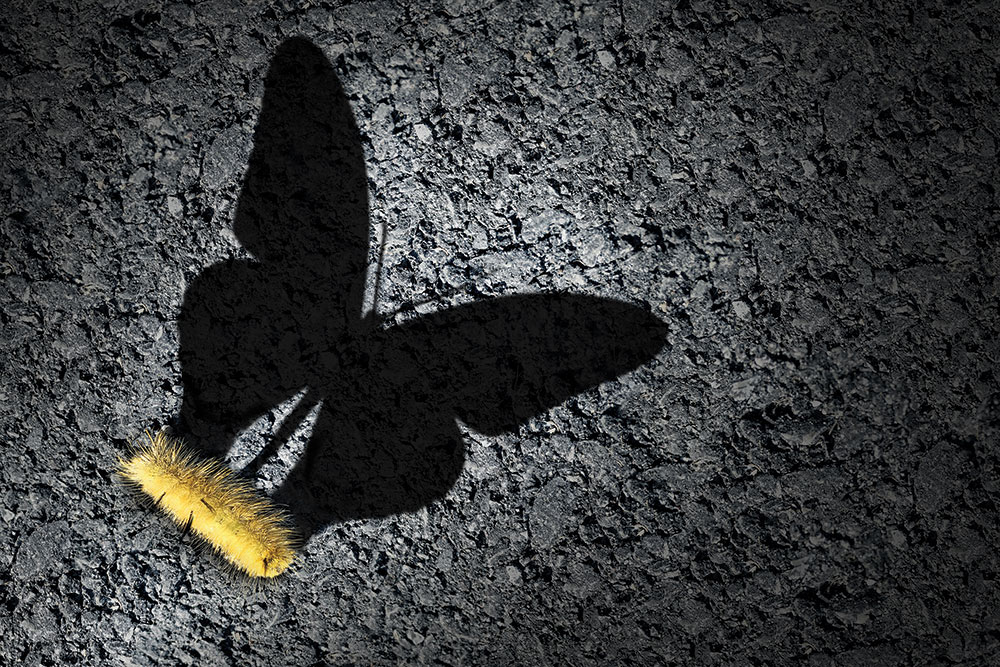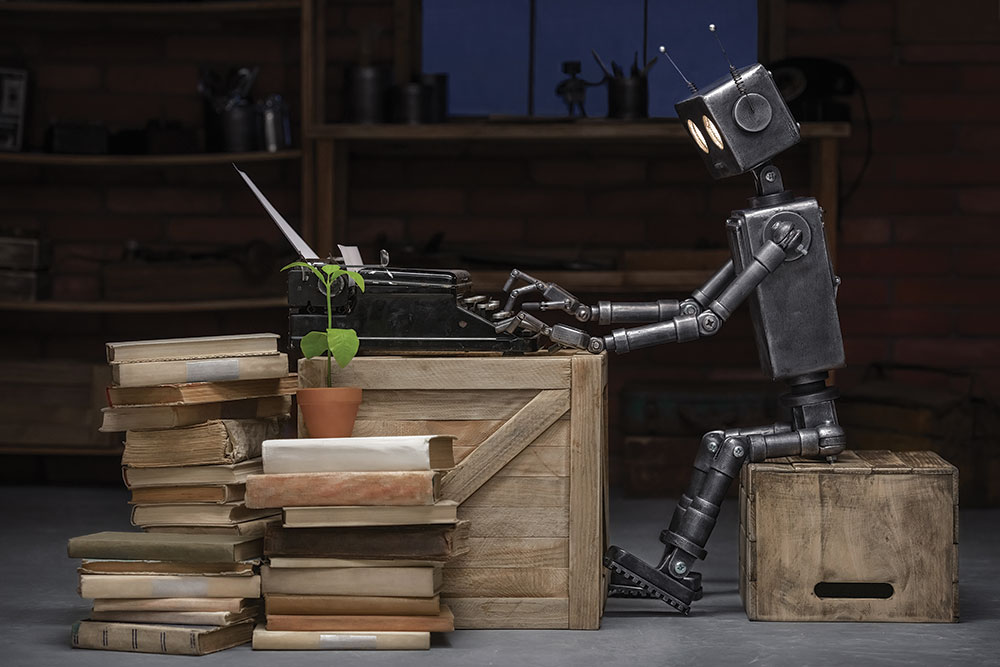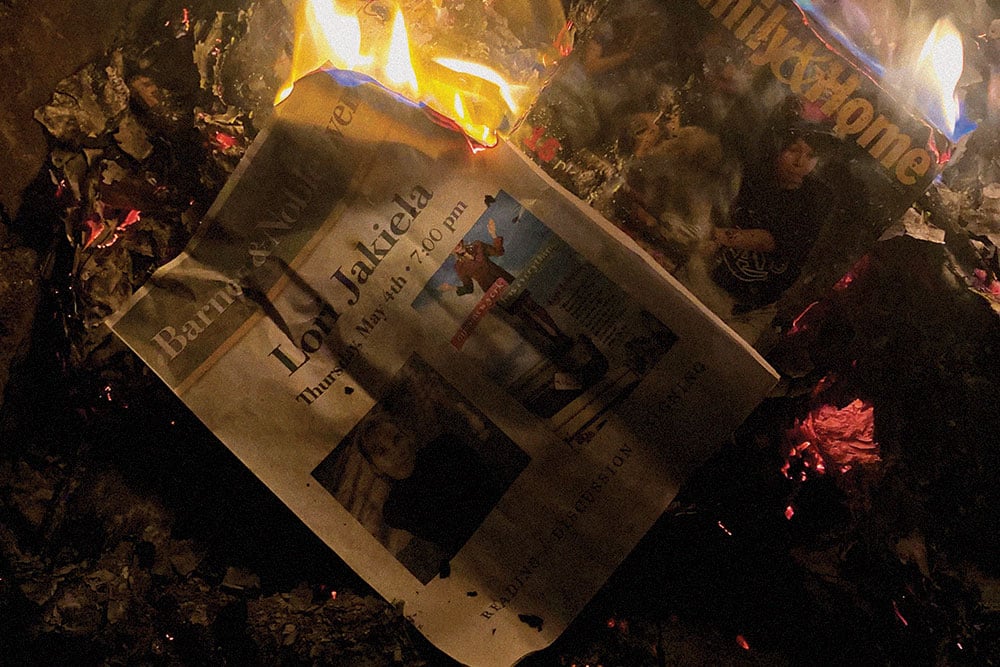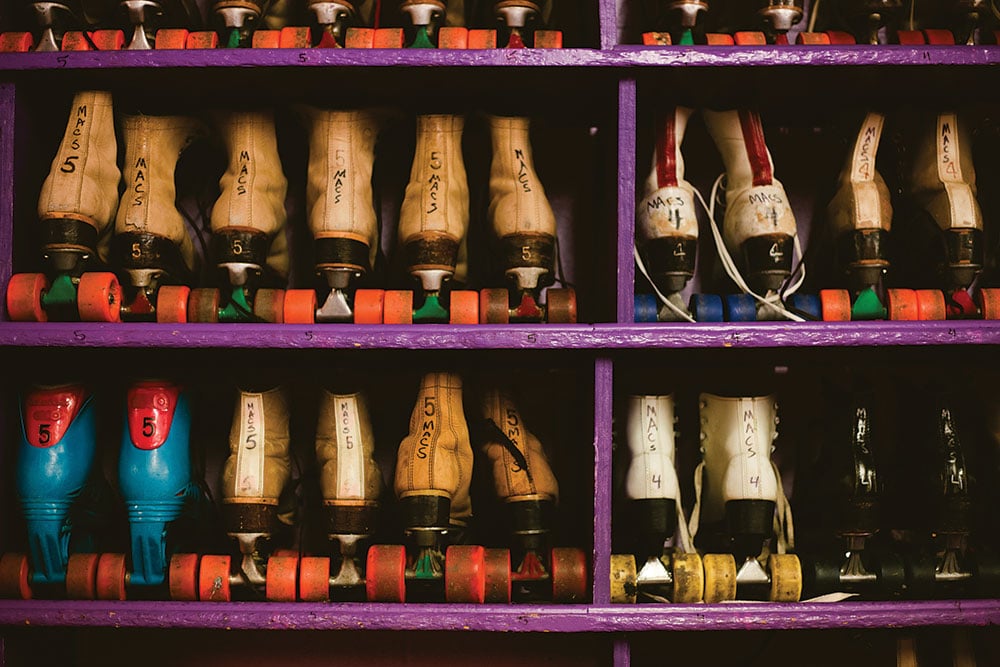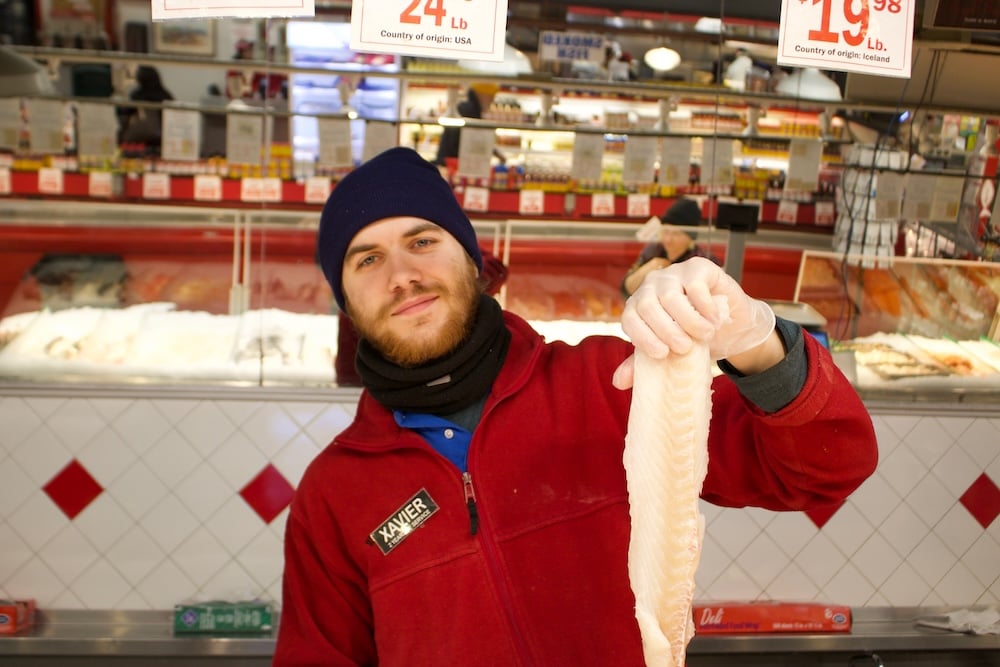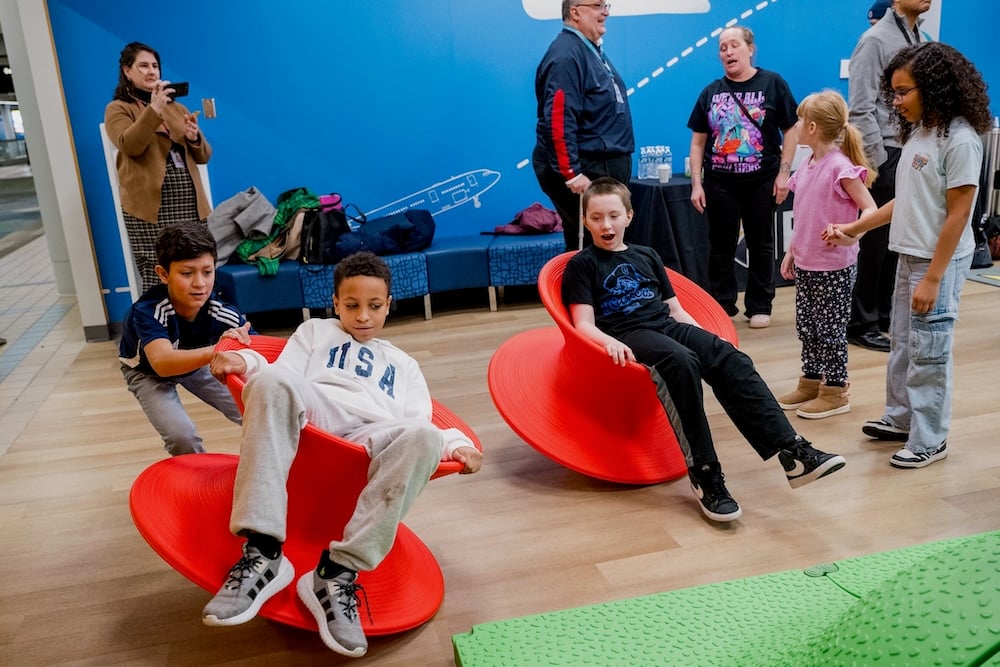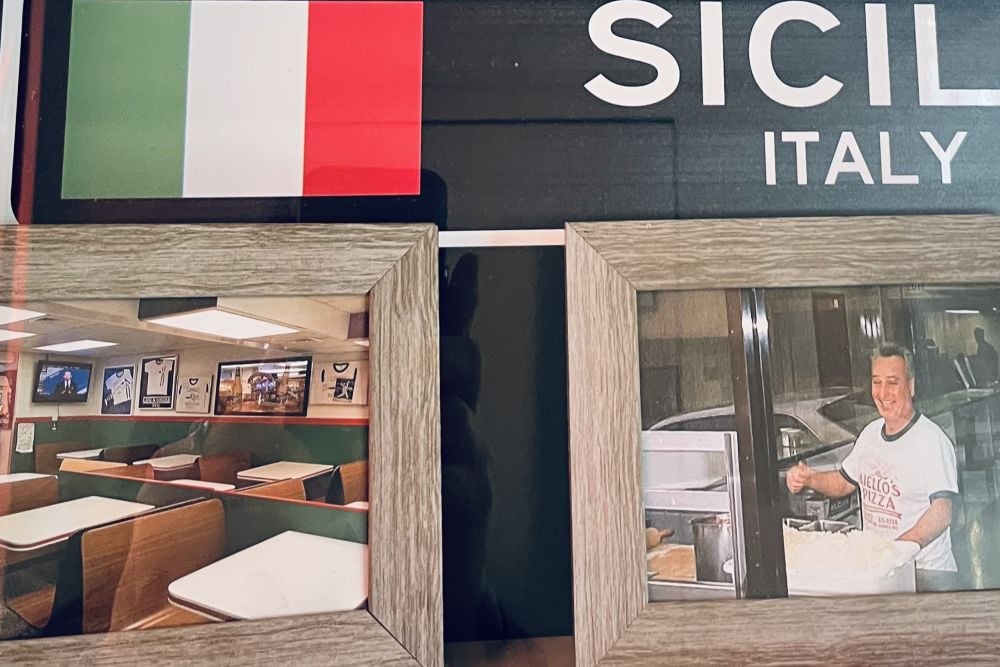Let Yourself Go: In Here, Life is Beautiful
Lori Jakiela writes of “Cabaret,” Jung, mail-order butterfly kits, SpongeBob, Liza and the fine parental art of letting go.
The butterfly kit I’d ordered came with six caterpillars. They arrived in what looked like Tupperware. I couldn’t believe they survived the trip.
“Are they OK?” My daughter, Phelan, tried not to sound concerned as she jiggled the container.
The caterpillars were spindly, barely moving.
“I’m sure they’re fine,” I said — but the kit had been on sale, 40% off.
“We guarantee at least three caterpillars to become happy adult butterflies!” the description said.
Phelan asked, “How do they know they’ll be happy?” Her green eyes were serious, a scientist weighing fact from opinion.
The butterflies were for a middle school project. Phelan was having a hard time then, though she acted happy and brave.
“Such a joy,” her teachers wrote on her report cards.
“You are my heart,” I’d say to my daughter.
What terrible pressure to put on someone, a line deserving an apology.
About the butterflies’ feelings, I said, “Caterpillars probably want wings more than anything. Wings make them happy. Probably.”
Middle school — that vicious gauntlet of periods and breasts, bullies and their even-nastier mothers in bedazzled designer jeans.
Once, on the school bus, my daughter sat with a kid who lived in a fancier house. The kid’s mom boarded the bus and moved her daughter to another seat, next to a child whose parents made more money and banned “SpongeBob SquarePants.”
Many mothers in our neighborhood thought “SpongeBob” was a bad influence, all that unrestrained joy. They thought Patrick Star was gay because — pink starfish?
I should have said something to the mother, to the bus driver, but I was confused. Could an adult be that cruel to a child?
I wanted to think not.
The bus drove off. My daughter looked away, not blowing her usual kisses.
“If you thought you saw me crying, you didn’t,” my daughter said later.
It hurts even now to write this.
No wonder the weight of growing up makes many girls slump, as if they could fold their shoulders in like wings, something to disappear beneath.
“Pull your shoulders back,” my mother said.
“Pull your shoulders back,” I said, because we all become our mothers, no matter what.
I told my daughter to pull up, like an airplane, to keep her from crashing, to save her from the gravity of the world.
“There is no coming to consciousness without pain,” Carl Jung said.
Lately I’ve been re-reading Jung’s ideas about life’s stages. “Who looks outside, dreams,” Jung said.
As I write this, Phelan is in her dream time, her first year at college. My daughter is, Jung would say, becoming. She’s turning outward, studying acting at a conservatory in Virginia. She says she feels most alive on stage — all that early awkwardness vanished, pushed away like the vegetables she still refuses to eat.
Twice my daughter performed in drag, something that would make those “SpongeBob”-fearing mothers gasp. Phelan loves glittery makeup and sequined gowns. She loves feather boas and does a great Liza Minnelli as Sally Bowles in “Cabaret.”
“I feel like myself, only bigger,” Phelan says about drag, that ancient art created when only men could become actors. In her dorm, a poster of Liza beams behind Phelan’s bed like a beacon.
Jung said all of life is a journey toward the Self, the discovery of who we truly are.
It’s a beautiful thing to see my daughter perform, shoulders back, arms thrown wide, even as I feel myself turning inward.
“Who looks inside, awakes,” Jung said about this sunset, middle-aged stage of life.
My daughter’s absence feels bigger than I thought it would. Soon she’ll come home for Thanksgiving. I’ll make macaroni and cheese. I’ll keep all the vegetables away. But I know my daughter will be changed, and I’ll be changed, and we’ll have to find new ways to move forward together.
“We cannot change anything until we accept it,” Jung said.
For now, I’ve kept Phelan’s bedroom door closed. Sometimes I forget and think she’s in there. I have to stop myself from knocking, wanting to share a silly video — birds swearing, our favorite — or just plop on her bed to gab and plan our next adventure.
For a while after my mother died, I left the lights on in her house. When I’d drive by, I’d see the lights and let myself believe she was alive in there, watching reruns of “The Golden Girls” and eating the Cheetos her doctors forbade.
And then one day I turned off the lights.
And then one day, I erased my mother’s voice from my voicemail, though sometimes I can still hear her.
Losing my mother is not the same as my daughter going off to college, I know, but I feel the losses piling up.
“There is no coming to consciousness without pain.” That unfortunate truth of being alive.
I wouldn’t call what I’m feeling a crisis. I have work I love. I have grown children I love and a husband who rubs my feet when they hurt. My feet always hurt. I teach. I write. I read. I have what’s called purpose.
And yet.
“Leave your troubles outside!” the master of ceremonies in “Cabaret” says. “Life is disappointing? Forget it!”
Life is a cabaret, old chum.
Only five of those caterpillars hatched at first. The sixth chrysalis fell to the bottom of the cage. One of the other butterflies stayed next to it and kept watch until it opened, despite the odds.
“I knew he’d be OK,” Phelan said.
The day we set the butterflies free, Phelan and I watched them fly off. The weather report wasn’t great. I worried we’d set them free to die. But a butterfly’s lifespan is a sketchy thing — two weeks to nine months to a year.
“The sole purpose of human existence is to kindle a light in the darkness,” Jung wrote in an article for “The Atlantic” in 1962.
“They look happy,” my daughter said, and I said, “They do.”
Let Yourself Go is a quarterly essay series by Lori Jakiela. Her latest book, “They Write Your Name on a Grain of Rice: On Cancer, Love, and Living Even So,” was recently published by Atticus Books.


